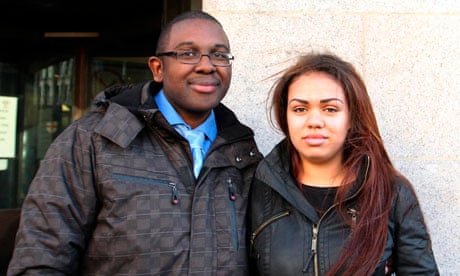As I rushed around this morning, I was stopped in my tracks by the radio reports of Jayden Wray, the baby whose undiagnosed case of rickets led to his death, the wrongful convictions of his parents for harming him, and the removal of their surviving daughter.
The journalist asked the Wray family lawyer, "What should happen to stop it happening again?", a question that has been posed often when such miscarriages of justice occur. But my own answers to this question lie in both personal and professional experience.
As someone who has worked as a social worker, within child protection, and who has therefore seen children harmed by their parents, I understand the need for adequate safeguards to prevent this happening. But I also have a painfully personal experience of sudden, unexpected child death and subsequent investigation.
In 2003 I gave birth to twin boys who were eight weeks premature and with a very low birth weight. One of my boys, Joe, failed to thrive and was diagnosed with a plethora of potential medical disorders. He was in intensive care for weeks where he suffered a collapsed lung and was given massive doses of antibiotics to help him survive.
After nearly two months the boys were discharged from hospital and I assumed that all was well. Joe grew into a stout toddler who could walk and say quite a few words. He was inclined to colds and infections and, concerned by this, I made several trips to the GP where I was reassured Joe was simply a "happy wheezer".
Then, one night in 2005, when Joe was 19 months old, he seemed a bit snuffly. So I took his temperature, which was normal, and checked for any serious signs. There were none. Joe drank a good bottle of milk at bedtime and fell asleep easily. In the morning when I went into the boys' room, he was dead.
The telephone call requesting an ambulance triggered a police rapid response. In the UK all sudden, unexpected child deaths are investigated in this way, with the child's body and room constituting a crime scene. Parents are viewed as guilty until found innocent and interviewed separately by police, who also routinely remove bedding and other items.
In most parts of the country the police investigating teams are dubbed "child abuse teams". Once an investigation is complete it is very unusual for parents to have any further contact from the police unless, as in the Wray case, charges are brought. This leaves parents in many cases feeling that they may be arrested, or have surviving children removed even years later.
In my case, no charges were brought and the postmortem eventually showed that Joe's sudden death was caused in part by his lowered immunity caused in turn by the circumstances of his birth. It seemed he was not such a "happy wheezer" after all and yet it was us, his parents, who came under suspicion for his murder.
As a former professional myself, I was shocked by the lack of sensitivity which accompanied Joe's death. Despite numerous calls for professionals to "listen to the voices of parents", there still exists a professional mythology that it was only in the "bad old days" that investigations were handled without sensitivity and humanity. So while I understand children's deaths must be investigated, I do not recognise the need for the balance of suspicion to be so great and for language like "crime scene" and "child abuse team" to be so routinely used.
These factors could be changed easily without investigation being prevented, and I would also urge that professionals communicate with parents and listen to their accounts of investigation so they can be helped to face the reality of their intrusion into parents' lives at this traumatic time.
My experience led me to begin a PhD research project exploring what can be learned from parents who have experienced a professional response following the sudden, unexpected death of a child and is based on in-depth narrative interviews.
What I have learned from my research goes some way to answering the radio presenter's question, but the answers are not simple. Child death is almost a taboo subject in our culture. I have frequently been met with hostile and fearful responses to my research and at times it has felt hard to continue. I understand these responses and this taboo to be products of popular belief in the infallibility of medical science, together with the medical profession's frequent failure to admit to its own shortcomings.
In an age and culture where so much can be "upgraded", "renewed" and "re-charged", where youth is prized and old aged side-lined, the sudden, unexpected death of a child becomes unthinkable. Paradoxically, therefore, it may be easier to accuse parents of harming their children than to admit to the fact that life is still, despite our best efforts to control it, mostly random and unpredictable. From my own professional and personal experiences, I believe such fears lurk at the heart of cases like baby Jayden Wray.
My research study seeks to make parents' stories accessible to provide professionals in this field with an important learning resource that may go some way to "stop it happening again".
